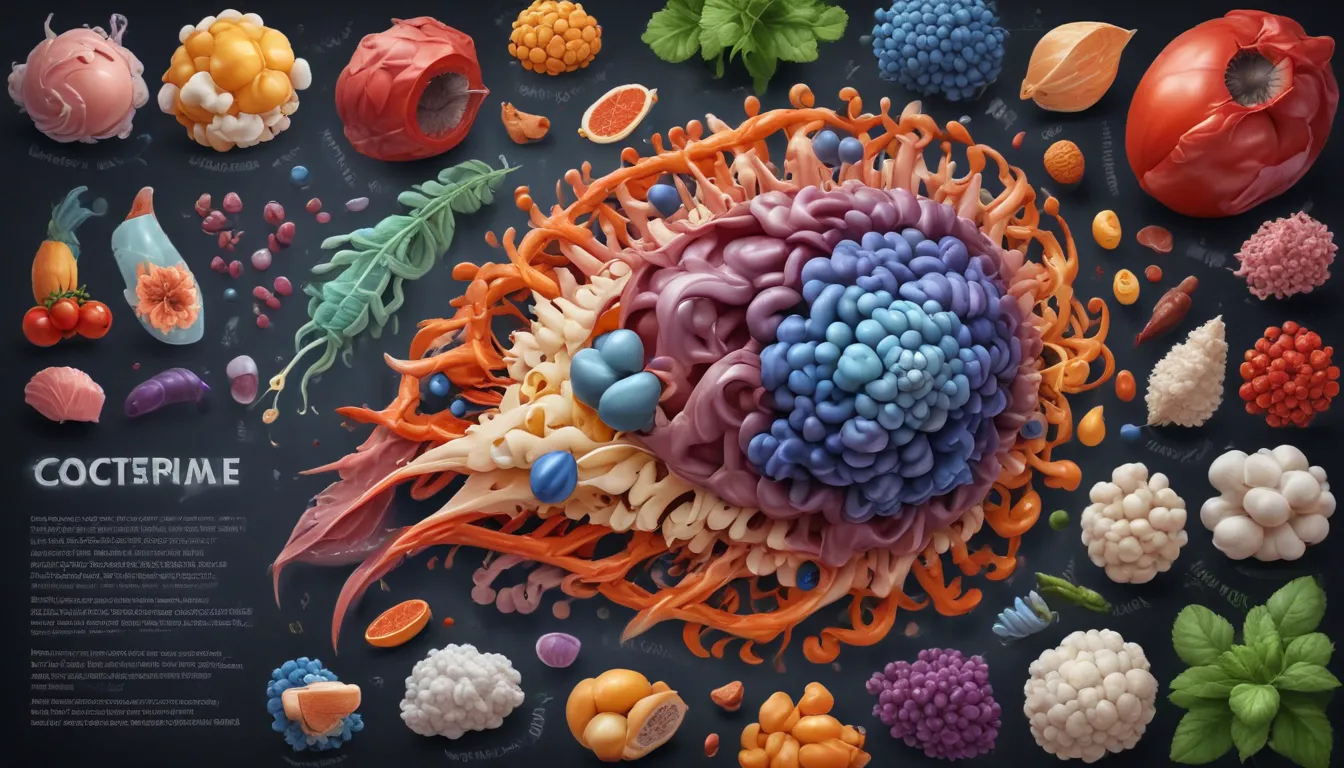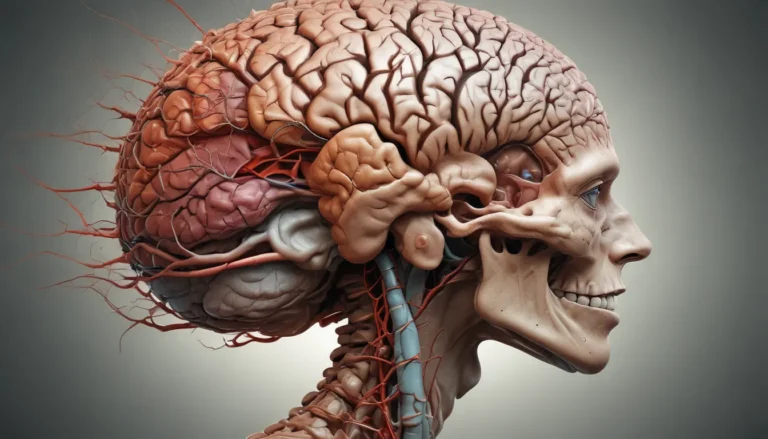A Note About Images: The images used in our articles are for illustration purposes only and may not exactly match the content. They are meant to engage readers, but the text should be relied upon for accurate information.
In the intricate world of biochemistry, one molecule stands out for its versatility and significance – Coenzyme A (CoA). This superhero molecule plays a pivotal role in energy production, hormone synthesis, detoxification, and gene regulation, making it a cornerstone of our biological processes. Let’s embark on a fascinating journey into the realm of Coenzyme A and unravel the secrets behind this remarkable molecule!
Unveiling the Marvels of Coenzyme A
Coenzyme A, often hailed as the “master regulator” of metabolism, is involved in over 70 biochemical reactions within our bodies. From breaking down carbohydrates, fats, and proteins to synthesizing essential molecules like hormones, neurotransmitters, and DNA, CoA wears many hats in our cellular machinery. Its role in detoxification processes further highlights its significance in eliminating harmful substances from our bodies.
The Mighty Role of Coenzyme A in Energy Production
At the core of Coenzyme A’s functionality lies its crucial role in energy production. By aiding in the conversion of carbohydrates, fats, and proteins into energy, CoA acts as a cofactor in key metabolic reactions such as the citric acid cycle, fatty acid synthesis, and amino acid metabolism. This superhero molecule ensures that our cells have the necessary fuel to thrive and function optimally.
Coenzyme A: The Architect of Hormone Synthesis
Beyond energy production, Coenzyme A plays a pivotal role in the synthesis of steroid hormones, including cortisol, aldosterone, estrogen, and testosterone. These hormones play a vital role in regulating various physiological processes in our bodies, underscoring the essential nature of CoA in maintaining hormonal balance and overall health.
Pantothenic Acid: The Precursor to Coenzyme A
Derived from the B-vitamin pantothenic acid, also known as vitamin B5, Coenzyme A’s synthesis hinges on the availability of this essential nutrient. Foods rich in vitamin B5, such as meat, eggs, whole grains, and legumes, play a crucial role in maintaining optimal CoA levels in our bodies, ensuring seamless metabolic functions.
The Guardian of Detoxification: Coenzyme A’s Crucial Role
In the liver, Coenzyme A emerges as a stalwart defender, aiding in the detoxification of drugs and toxins. By facilitating the breakdown and elimination of harmful substances from our bodies, CoA serves as a shield against potentially damaging compounds, showcasing its indispensable role in maintaining overall health and well-being.
The Essential Player in Fatty Acid Synthesis
Coenzyme A’s involvement in the synthesis of fatty acids underscores its importance in the formation of cell membranes and the storage of energy in the form of adipose tissue. This vital function highlights CoA’s versatility and its pivotal role in orchestrating key biological processes essential for cellular function and integrity.
Coenzyme A: A Symphony Conductor of Gene Expression
In the intricate symphony of gene expression, Coenzyme A emerges as a crucial conductor, regulating gene activity through its involvement in epigenetic modifications. By adding acetyl groups to histones, CoA can either activate or inhibit gene transcription, exerting a profound influence on our genetic landscape and cellular functions.
The Crucial Component: Acetyl-CoA’s Vital Role
The amalgamation of Coenzyme A and acetyl groups gives rise to acetyl-CoA, a central molecule in cellular metabolism. This pivotal compound serves as a critical precursor for energy production and the synthesis of various essential molecules within our bodies, further underscoring CoA’s indispensable role in maintaining cellular homeostasis.
Coenzyme A: The Sentinel Against Health Issues
A deficiency in Coenzyme A can lead to an array of health issues, ranging from metabolic disorders and neurological abnormalities to impaired energy production and hormonal synthesis. The impact of CoA insufficiency on chronic conditions underscores the critical nature of maintaining optimal levels of this superhero molecule for overall health and well-being.
Blazing the Trail in Neurotransmitter Production
Coenzyme A’s involvement in the synthesis of neurotransmitters such as acetylcholine, dopamine, and serotonin highlights its crucial role in maintaining proper brain function and regulating mood. The intricate interplay between CoA and neurotransmitters showcases its multifaceted nature and its profound impact on neurological health.
The Epicenter of Synthesis: Mitochondrial Production of Coenzyme A
Within the mitochondria, the powerhouse of the cell, Coenzyme A takes center stage in its synthesis process. This pivotal organelle serves as the hub for CoA production, further emphasizing its role in energy metabolism and cellular vitality.
The Cholesterol Conundrum: Coenzyme A’s Involvement
Coenzyme A’s participation in the breakdown of cholesterol elucidates its role in maintaining cholesterol homeostasis within our bodies. This critical function underscores CoA’s contribution to overall metabolic balance and cellular health.
Illuminating the Path to Heme Synthesis
In the synthesis of heme, a vital component of hemoglobin and myoglobin, Coenzyme A emerges as a key player. This essential molecule facilitates the production of heme, responsible for the oxygen-carrying capacity of red blood cells, exemplifying CoA’s multifaceted contributions to our physiological well-being.
The Maestro of Bile Acid Synthesis
Coenzyme A’s involvement in the synthesis of bile acids underscores its essential role in digestion, absorption of dietary fats, and waste elimination from the liver. This critical function highlights CoA’s impact on our digestive processes and overall metabolic balance.
The Defender Against Oxidative Stress: Coenzyme A’s Crucial Role
By participating in the production of glutathione, a potent antioxidant that shields cells from oxidative damage, Coenzyme A emerges as a formidable defender against cellular stress. This pivotal function underscores CoA’s role in detoxification processes and preserving cellular integrity in the face of oxidative challenges.
Nourishing Our Health: The Influence of Dietary Factors on Coenzyme A Levels
The availability of Coenzyme A is intricately linked to our dietary choices, particularly the intake of foods rich in pantothenic acid. Maintaining a balanced diet that includes sources of vitamin B5 is essential for sustaining optimal CoA levels, underscoring the importance of nutrition in supporting our metabolic functions.
Unlocking Therapeutic Potential: Coenzyme A’s Promising Applications
Coenzyme A’s therapeutic potential extends to various metabolic disorders and neurological conditions, showcasing its versatility and significance in the realm of health and wellness. Ongoing research endeavors aim to unveil the full therapeutic scope of CoA, paving the way for innovative treatments and insights into complex diseases.
A Glimpse into the Multifaceted World of Coenzyme A
From energy production and gene regulation to detoxification and neurotransmitter synthesis, Coenzyme A’s multifaceted functions unveil a world of intrigue and complexity within our biological systems. Its pivotal role in cellular physiology underscores the intricate dance of biochemical pathways that shape our health and well-being, highlighting CoA as an indispensable cornerstone of life.
Embracing the Marvels of Coenzyme A: A Journey of Discovery
As we delve into the captivating realm of Coenzyme A, we uncover a treasure trove of insights into its structure, functions, and significance in our biological landscape. From its role as a carrier molecule to its crucial cofactor activities, CoA’s elegance and complexity showcase the beauty of biochemistry at the molecular level. Whether you’re a curious learner or a seasoned scientist, join us in unraveling the awe-inspiring mysteries of Coenzyme A and celebrating its profound impact on our understanding of life’s intricate workings.
FAQs
- What is Coenzyme A (CoA)?
Coenzyme A is a coenzyme that plays a critical role in various metabolic reactions within cells. - What is the structure of Coenzyme A?
Coenzyme A consists of adenosine monophosphate (AMP), pantothenic acid, and a 4′-phosphopantetheine moiety. - What are the functions of Coenzyme A?
Coenzyme A functions as a carrier molecule, shuttling acyl groups for various chemical reactions. It also acts as a cofactor for enzymes involved in energy metabolism and cellular signaling pathways. - How is CoA synthesized in the body?
CoA is synthesized from pantothenic acid, obtained from dietary sources, through multiple cellular steps. - What are the diseases associated with Coenzyme A deficiency?
Coenzyme A deficiency can result in metabolic disorders such as pantothenate kinase-associated neurodegeneration (PKAN) and CoA synthase deficiency. - Can Coenzyme A be supplemented through diet?
While CoA cannot be directly supplemented, consuming foods rich in pantothenic acid supports CoA synthesis in the body. - Are there any known CoA-related drugs or therapies?
Currently, no specific drugs target Coenzyme A directly, but research may lead to targeted therapies in the future. - Can a lack of CoA impact energy production?
Yes, a deficiency in CoA can impair energy production since it is essential for glucose and fatty acid breakdown. - Are there any known interactions between Coenzyme A and other molecules?
CoA interacts with enzymes and molecules involved in energy metabolism, fatty acid synthesis, and cellular signaling pathways. - Can Coenzyme A be synthesized artificially for industrial applications?
Yes, synthetic CoA can be produced for various industrial and research uses, particularly in biochemical and pharmaceutical research.
In the fascinating realm of biochemistry, Coenzyme A shines as a beacon of intricate functionality and profound significance. Its multifaceted roles in energy production, hormone synthesis, detoxification, and gene regulation illuminate the complex web of biochemical pathways that underpin our biological existence. Join us in celebrating the marvels of Coenzyme A and embarking on a journey of discovery into the captivating world of biochemistry!






